meme stock
description: a stock that gains popularity among retail investors through social media
22 results
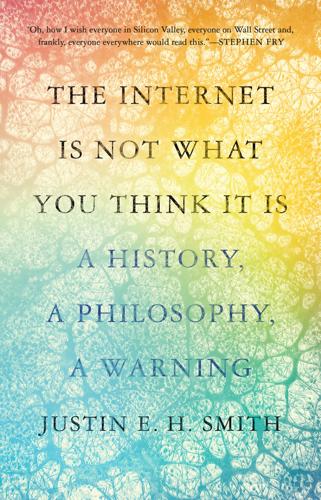
The Internet Is Not What You Think It Is: A History, a Philosophy, a Warning
by Justin E. H. Smith · 22 Mar 2022 · 198pp · 59,351 words
’s mind with the promise of accumulating more points of some currency (likes, faves, followers, up-votes, not to mention also—with the rise of “meme stocks” and cryptocurrency exchanges—real money), has the power to harness and hold the user’s concentration, but not their attention. In its current form it
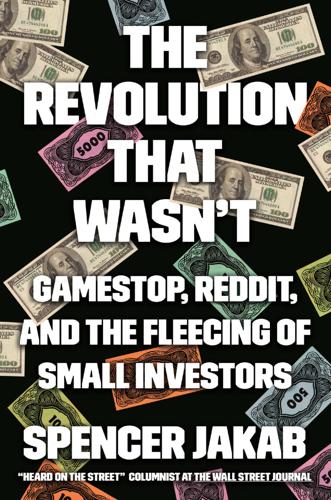
The Revolution That Wasn't: GameStop, Reddit, and the Fleecing of Small Investors
by Spencer Jakab · 1 Feb 2022 · 420pp · 94,064 words
the founder of the hedge fund giant Citadel and the largest shareholder of Citadel Securities, the company that processed more retail stock orders during the meme-stock squeeze than any other firm. When some of the representatives’ questions became pointed, Griffin’s round, blue eyes looked directly into the camera and
…
beneficiaries of the innovations that had supposedly leveled the playing field between savvy financiers like him and the little guy. Even the year before the meme-stock squeeze, as retail trading was becoming America’s new pastime, Citadel Securities reportedly doubled its revenue to a whopping $6.6 billion.[14] Steve
…
that could have turned the discussion in a more fruitful direction. That inequality, and a general distrust of experts, played a key role in the meme-stock squeeze. Gill, the witness who was largely ignored by the committee, would have been more enlightening. He was, after all, the only retail investor
…
vital spark to the massive wave of stock buying through his steadfastness. More sophisticated than 99 percent of the young people heavily invested in the meme stocks, Gill shared much of their risk appetite and playfulness. Despite facing an investigation at the time, he plugged GameStop, which he continued to hold
…
panics are as old as markets. The usual prescription is more and better “investor education,” though there is little evidence that it is effective. The meme-stock squeeze delivered a wake-up call to everyone. Even as it was still going on, furious politicians called hearings, movie studios raced to ink deals
…
area of gamification manifests itself across the marketplace,” said Barbara Roper, director of investor protection for the Consumer Federation of America, interviewed weeks after the meme-stock squeeze. Roper had by then spent more than three decades as a Wall Street gadfly, speaking at conferences and to journalists as she tried to
…
minutes. In an effect Robinhood surely didn’t intend, the widespread use of this borrowing feature by many thousands of brand-new customers during the meme-stock squeeze nearly blew up the firm and the plumbing of the stock market, earning Tenev his audience with Congress. As a new Robinhood customer around
…
contracts known as “options” became especially popular with Robinhood’s locked-down young users in 2020’s wild market, and they were instrumental in the meme-stock squeeze. Some industry professionals were surprised at how easy the approval process was for inexperienced customers to trade options and how many embraced them. Part
…
became untethered from the profits the companies behind them could be expected to earn. The psychologist and social media scholar Van Bavel notes that the meme-stock squeeze “seemed to create its own form of common sense” on WallStreetBets. “The stock market is constrained by what is known as social reality—
…
publishing research on short-selling candidates after a long and mostly distinguished career. And when the respected media-industry analyst Rich Greenfield wrote that another meme stock, the movie-theater chain AMC, was worthless, his address was posted on Twitter, and he said his children received death threats by text. He
…
Left or Greenfield, the men were viciously targeted. At its most extreme and obnoxious, then, WallStreetBets not only engineered an epic short squeeze in the meme stocks but also personally intimidated people on the other side of the argument. In the future, investors, analysts, and even financial journalists might consider steering clear
…
pandemic was about to make scrolling through Reddit and trading stocks a lot more popular for young people, laying more of the groundwork for the meme-stock explosion. Another vital ingredient had fallen in October 2019 when every major broker cut its trading commissions to zero. Chapter 5 Race to the Bottom
…
] Customers were furious and criticized the firm on social media—a small foretaste of the lashing it would experience after it throttled the buying of meme stocks during the GameStop frenzy. The company did more than stay put, though. Both March 2020 and January 2021 saw record numbers of account openings.
…
series ended, its barometer crossed one million, and even that would pale in comparison with what we know about retail activity seven months later when meme stocks blew up. Zero-dollar commissions played a big role in that extraordinary surge, and brokers actually saw their profits rise rather than fall. “When
…
Trojan priestess cursed for always being right but never believed, he was wary of the most popular investing themes. As he wrote shortly after the meme-stock squeeze: Speculative stock #bubbles ultimately see the gamblers take on too much debt. #MarginDebt popularity accelerates at peaks. At this point the market is
…
development should be unnerving to anyone interested in market transparency. Some observers like Alexis Ohanian, Reddit’s cofounder, compared the group of traders who sent meme stocks surging and fund managers scurrying to the Occupy Wall Street movement. For anyone cast as a villain, it seemed to have more in common with
…
and 10,800 the week after in English-language publications. Similarly, Google search trends show that GameStop, WallStreetBets, and the movie-theater chain AMC, another meme stock, came out of nowhere to become three of the most searched terms in the United States that week. The pieces, as we have seen, fell
…
He had no idea how right he was. Chapter 13 Rise of the Apes Who said trickle-down economics is dead? Two months after the meme-stock squeeze, the Dian Fossey Gorilla Fund received news that a member of the WallStreetBets subreddit had symbolically adopted a baby gorilla, Urungano. In the next
…
traders take their cues from social media and check their account frequently on a device that never leaves their side. Goliath versus Goliath Until the meme-stock squeeze, though, their fellow investors had never pinpointed the precise way to push up the most sensitive stocks at the exact right time. They
…
hindsight were absurd valuations. In the early 1990s, there were dot-coms and red-hot initial public offerings. And in the run-up to the meme-stock squeeze, there were electric vehicles, social media, and blank check offerings that gave individuals immediate access to those companies before they could go through even
…
a way for Silicon Valley billionaires to avoid the pitchforks of a crowd that ultimately was upset about economic unfairness. At the peak of the meme-stock frenzy, progressive New York congresswoman Alexandria Ocasio-Cortez, known as AOC, invited Palihapitiya to a conversation on the live streaming platform Twitch. It fell
…
the time. A study by the cybersecurity firm PiiQ Media, which looked at Twitter, Facebook, Instagram, and YouTube, but not Reddit, found suspicious signs around meme stocks during and after the surge, including “start and stop patterns” that indicate bot activity.[21] It added that thousands of fake accounts can be bought
…
often not knowing the difference between the over-the-counter market and major exchanges, retail investors certainly weren’t shy around the time of the meme-stock squeeze. An incredible trillion shares of penny stocks were traded in December 2020. Toothless Regulators Retail losses stemming from bot activity don’t wind up
…
we have seen in decades for the ordinary people whose savings enable them to function. Chapter 16 January 27, 2021 In forty-eight hours the meme-stock squeeze had gone from something you might have had an inkling about if you followed markets closely to a major international news story. By Wednesday
…
Blockbuster Video so its executives could change their minds and buy Netflix twenty years earlier for its ridiculously cheap asking price of $50 million. The meme stocks were making some people rich, but they simply weren’t very desirable businesses. The stuffier, “institutional” part of Wall Street that is a step
…
study of language on WallStreetBets showing that the frequency with which members mocked their own intelligence in posts coincided with surges in the price of meme stocks. Being a “retard” was a badge of honor. It isn’t particularly productive to lecture someone who has been trouncing older and wiser investors
…
trading in the most hyped, borrowed-against, and volatile stocks, reducing the clearinghouse’s collateral requirements significantly, but also dealing a serious blow to the meme-stock squeeze in the process. At first this included eight stocks: AMC, BlackBerry, Bed Bath & Beyond, Express, GameStop, Koss, Naked, and Nokia. The list would
…
and look like you’re helping people,” scoffs Jon Stein, chairman of robo-adviser Betterment, which doesn’t allow clients to buy individual stocks. The meme-stock squeeze and Robinhood’s cash crunch came as a surprise to the authorities and nearly everybody else. The surge in retail activity and risky behavior
…
Unfortunately for Robinhood, it had become the public villain in this story for an entirely different reason: not allowing its customers to keep buying the meme stocks. Tenev had an innocent explanation, but politicians saw which way the wind was blowing. Unlike regulators, they weren’t shy about shooting first and asking
…
that it faced a huge increase in regulatory capital requirements. While it probably came at a convenient time for a few hedge funds, further unrestricted meme-stock buying would have bankrupted Robinhood and inflicted severe losses on others. It nearly did anyway. Republican senator Josh Hawley of Missouri was one of the
…
male was sixty-year-old David—also the only person featured who was older than thirty-three. David wasn’t a customer looking to ride meme stocks to the moon but instead used Robinhood “to learn about new businesses working towards ambitious goals to better the planet through environmental initiatives and healthy
…
Other brokers faced increased cash needs too, but many of them are backed by larger financial firms, and none had customers as interested in the meme stocks as Robinhood. Recall that there was a heavy overlap between Robinhood and WallStreetBets. Industry-wide deposit requirements rose by only 30 percent.[20] But all
…
Street could attract a new group of small-dollar speculators while being able to boast that it was doing something noble by “democratizing finance.” The meme-stock squeeze probably wouldn’t have happened without payment for order flow, but the finger-pointing that followed wound up chasing shadows. Orders routed to a
…
a typical day in 2019 before every broker moved to zero commissions. Because the figures aren’t public, we don’t know how lucrative the meme-stock squeeze was for Citadel Securities. Competitor Virtu Financial, which does release that information, reported the largest quarterly profit in its history. Griffin ended 2020
…
twelve years. “I’d say the first quarter was an extraordinary quarter,” said Chief Executive Officer David Solomon. The Opportunists One huge winner from the meme-stock squeeze couldn’t resist coming back for seconds. Jason Mudrick, forty-five years old at the time, seems like the sort of Wall Streeter the
…
run, wrote a noteworthy personal-finance book, Big Money Thinks Small: Biases, Blind Spots, and Smarter Investing, that spoke directly to a situation like the meme-stock squeeze. He cautioned, for example, that trying to guess “how long others will remain shortsighted” in a market frenzy is more like gambling than investing
…
the revolutionaries didn’t benefit from those temporary bargains—other hedge funds did when they filled the vacuum. Insiders Cash Out The bounty from the meme-stock squeeze also extended to executives and board members of the affected companies. Normally they are prevented from buying or selling shares if they know of
…
any serious consequences during the financial crisis—rode to the rescue of failing businesses and lenders and fund managers who had made poor choices. The meme-stock squeeze not only failed to bankrupt any millionaires or billionaires, it enriched several out of sheer, dumb luck. When all was said and done,
…
new mountains to conquer. Some suspected outside manipulators when many newer members on the board began to tout silver. Starting on the Thursday of the meme-stock squeeze, the day that trading restrictions were imposed on certain stocks, a silver exchange-traded fund saw a surge in activity. The buying then spilled
…
just YOLO traders—simply aren’t very good at picking stocks. Dispassionate stock-picking computers must have heated up their circuits with excitement when the meme-stock squeeze was going on. One fund that showed up and then disappeared as an owner of GameStop shares according to securities filings was Renaissance Technologies
…
competitors would disclose average client performance. One of the many reasons their customers probably do especially poorly is the very same phenomenon that made the meme-stock squeeze possible—paying attention to the same small subset of stocks. A newer Barber and Odean study observed thousands of “herding events’’ of stocks
…
decades. One of his nineteen books on personal finance looked at seventy-seven errors that individual investors make. It was published a decade before the meme-stock squeeze, and he jokes that it probably could be expanded to one hundred mistakes for the WallStreetBets era. A Beautiful Relationship with Washington For all
…
them to raise money. They are now allowed to file “confidentially” for initial public offerings—a provision used by Robinhood itself just weeks after the meme-stock squeeze—and the act expanded the types of companies that can conduct offerings without registering with the SEC. Meanwhile, the boom in SPACs that dovetailed
…
my agent Eric Lupfer and the decision-makers at Portfolio, Adrian Zackheim and Niki Papadopoulos, immediately saw the promise in this project even as the meme-stock squeeze was still unfolding. And of course my wise and talented editor, Noah Schwartzberg, and his assistant, Kimberly Meilun, have their fingerprints on every
…
hiding behind a pseudonym on Reddit like cd258519, Stonksflyingup, and Techmonk123. They provided a real-time running commentary of how the WallStreetBets community saw the meme-stock squeeze unfold and of Keith Gill’s rise from obscurity to legendary status. As for the people whose names I both know and am able
…
GameStop, GameStop short squeeze gamma, 108, 109, 132, 141, 216, 227–28 history of, 77–80 silver, 229–30 Volkswagen, 77–78, 81 see also meme stocks Shkreli, Martin, 38–39 Siegel, Robert, 50 SigFig, 257 Signal Advance, 60 Silent Road to Serfdom, The: Why Passive Investing Is Worse Than Marxism, 244
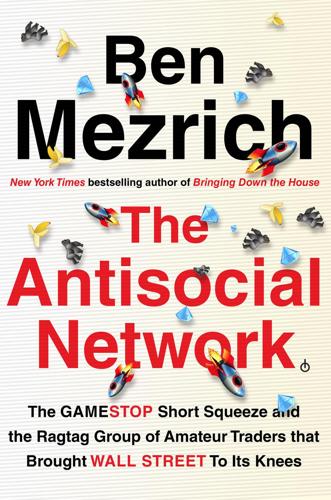
The Antisocial Network: The GameStop Short Squeeze and the Ragtag Group of Amateur Traders That Brought Wall Street to Its Knees
by Ben Mezrich · 6 Sep 2021 · 239pp · 74,845 words
deliver on their trades. To that respect, over the past week—even with the incredible volume of trading taking place in what were being called “meme” stocks, particularly GME—Robinhood’s deposit requirements had been high, but understandable. On January 25, the deposit requirement at the start of the day had been
…
come right out and said it. The millions of Robinhood customers could no longer buy GameStop through the app, along with a half-dozen other meme stocks—basically anything that Melvin Capital and their Wall Street colleagues had shorted and were trying to cover. And it wasn’t just Robinhood that had
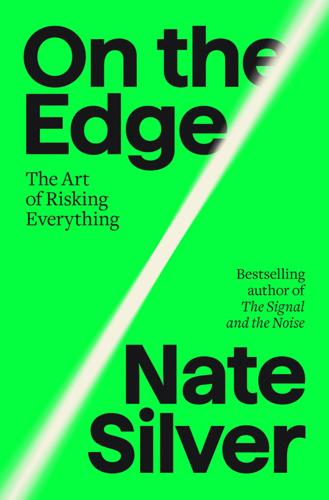
On the Edge: The Art of Risking Everything
by Nate Silver · 12 Aug 2024 · 848pp · 227,015 words
the COVID pandemic, coupled with an injection of COVID stimulus cash, was at least partly responsible for the run-up in crypto assets along with meme stocks such as GameStop. The timing lines up relatively well. Bitcoin first hit a peak in March and April 2021, right around when vaccines became widely
…
or NFT collection without considering its underlying value. Boredom Markets Hypothesis: A theory proposed by Matt Levine that attributed the run-up in NFT prices, meme stocks, and other speculative assets in 2020–22 to the boredom and anxiety caused by the COVID pandemic. Bracelet (poker): The gold bracelet awarded for winning
…
’s term for distorted prices generated through spontaneous coordination in online communities, which make no pretense of caring about the fundamental value of the asset. Meme stock: A stock such as GameStop driven up to irrational values due to viral enthusiasm on platforms like r/wallstreetbets, temporarily squeezing out short sellers. Middle
…
1-in-6 chance that you’ll shoot yourself dead. r/wallstreetbets: A Reddit forum (subreddit) popular among amateur day traders and instrumental in facilitating meme stock bubbles like GameStop; known for trolling with adolescent humor and egging on degen behavior. Sample size: The number of data points or observations collected in
…
mean, 489 mean-reversion, 489 media, 26, 27 See also social media median, 489 megalothymia, 468, 489 Meme Creation of Value, 314–16, 411, 489 meme stocks, 310, 489 Mencken, H. L., 72–73 Mickelson, Phil, 197n middle (sports betting), 489 Midriver, 21, 489 Miller, Ed, 134–35, 172, 177n, 186 mimetic
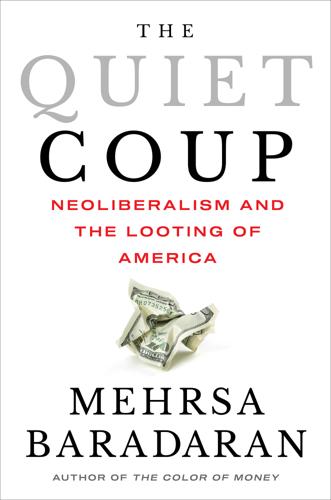
The Quiet Coup: Neoliberalism and the Looting of America
by Mehrsa Baradaran · 7 May 2024 · 470pp · 158,007 words
—and to stick it to the hedge funds. Unlike most retail investors, who invest in the market to earn a return, investors in so-called meme stocks see the market as a “battleground on which they join forces to right perceived wrongs and fight the powerful.”8 In the heady days at
…
the end of 2020 and the beginning of 2021, meme-stock warriors turned toward zealotry, calling their stock buys a “revolution.” Small volume traders using Robinhood’s accessible and easy platform described the GameStop event as
…
a David and Goliath standoff where the Davids won through collective action. When Robinhood halted trading amid a massive demand for meme stocks, it was revealed that the app was profiting from customer trades by selling payments for order flow (essentially, a commission made by the broker for
…
routing trade exchanges to a particular market to large traders, including hedge funds like Citadel Capital—incidentally one of the meme-stock investors’ prime targets). It was hedge funds all the way down. A year after the WSB revolt fizzled, Mat Bowen, a Dogecoin, AMC, and GameStop
…
battle of good versus evil is not just limited to the walls of a church or a synagogue or a mosque,” said Bowen. For the meme-stock investors, “evil” was Wall Street and the so-called experts manipulating the market. Even traders who were just looking to make a profit, like a
…
American politics verged into the absurd, markets also became a joke. It was hard not to see the billions of real dollars that flowed into meme stocks, meme coins, and NFTs as a sign of the nihilism that gave Trump the presidency. If the system was rigged—or at least felt rigged
…
suffering)? “We’re living in a system where there’s no such thing as justice anymore and the entire world is falling apart,” said one meme-stock trader to the Times. “Nothing really matters, so we might as well try to have fun while we’re here.” The cynicism of neoliberal mythmaking
…
was not so well hidden after all. The meme-stock craze repels attempts at finding meaning in it—its irony and incongruity are the point. But another way to see this event is as a
…
form of resistance and protest whose assessment of the problem is more accurate than its aims or means. Meme stocks are an antibody response to an infection, a rot, somewhere in the nation’s institutions and systems. The problem is that antibodies can sometimes attack
…
, are antibodies attacking the diseased system with misfires along the way. The fact that so many young people took all their chips and bought Dogecoin meme stocks, NFTs, and other abstract signals of group identity is a signal of their willingness to try something new. What these experiments in the crypto market
…
Modern Corporation and Private Property, 80 Mecca, 38 media, 8, 86, 93–94, 115, 120, 124, 225, 228, 319, 323, 324 Meese, Edwin, 145 memes (meme stocks), xxviii, xxix, xxxiii, 328–33, 340 mercantilism, 36 Mercers, 142 mergers, 80, 241, 255, 272 Merkley, Jeff, 303 Merrill Lynch, 290, 291 “Me-search,” 355

Boom: Bubbles and the End of Stagnation
by Byrne Hobart and Tobias Huber · 29 Oct 2024 · 292pp · 106,826 words
is here to rescue the markets and everything will go up? The most extreme expression of this disconnect from economic reality is the rise of meme stocks and corresponding FOMO (fear of missing out) and YOLO (you only live once) investing strategies. 55 Financial markets have entered the age of the simulacrum
…
-of-the-world.html. As a result of Musk’s mastery of investment narratives, which he developed during the cleantech bubble, Tesla itself became a meme stock—that is, a stock that is primarily driven not by economic fundamentals but by narratives. It could be argued that Tesla is part of a
…
cliché that migrated to financial message boards like Reddit’s WallStreetBets in the early 2020s and helped coordinate life-changing speculative purchases of meme stocks—can be dismissed as the apex of irresponsibility. But beneath the veneer of financial nihilism, there’s a deeper truth to YOLO. Many innovation-accelerating
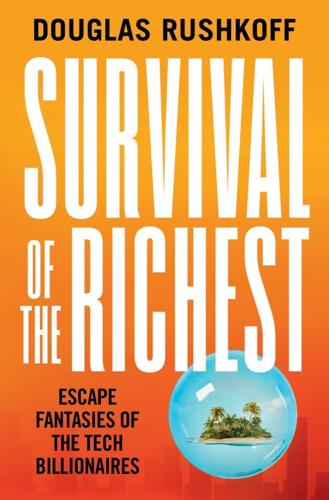
Survival of the Richest: Escape Fantasies of the Tech Billionaires
by Douglas Rushkoff · 7 Sep 2022 · 205pp · 61,903 words
even worry about how they would cover their bets if the stock didn’t tank. So the kids on Reddit chose Gamestop as their first “meme stock” and used new, highly accessible trading platforms like Robinhood to buy as much as they could. All the gamers had to do was purchase enough
…
traders transacted : Dalbar, Inc., “Quantitative Analysis of Investor Behavior 2011” (Boston: Dalbar, Inc., 2011). 165 The stock shot upwards : Eric Lam and Lu Wang, “Steely Meme-Stock Short Sellers Stare Down $4.5 Billion Loss,” Bloomberg , June 3, 2021, https:// www .bloomberg .com /news /articles /2021 -06 -03 /defiant
…
-meme -stock -short -sellers -stare -down -4 -5 -billion -loss. 166 A platform like TikTok : Shelly Banjo and Shawn Wen, “A Push-Up Contest on TikTok Exposed
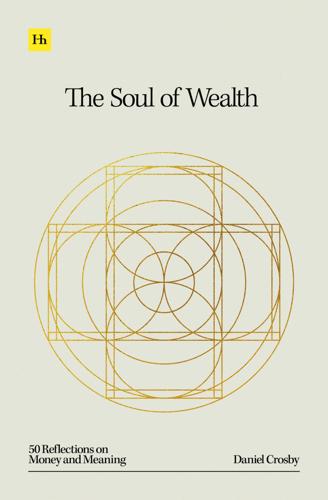
The Soul of Wealth
by Daniel Crosby · 19 Sep 2024 · 229pp · 73,085 words
reduced healthcare spending.162 What fun could you have with an extra couple grand in your yearly budget? See a therapist: Men will literally trade meme stocks rather than go to therapy. While you may or may not score with the former, the latter has been shown to increase income for men
…
for long-term wealth management, day trading and other risky money behaviors have been on the rise, spurred on in part by the Covid-19 meme stock mania. Why does it seem that our financial priorities are so out of whack? And what can be done by industry practitioners to help fix
…
not do that). But just recall all the financial hoopla that went on from 2020 through 2021. Finance and investing quickly turned mainstream. So-called meme stocks and cryptocurrencies were the talk of social media, and among socially distanced moms and dads at birthday parties. A survey from Ally Financial found that
…
two-in-five Americans traded a meme stock back then, including 66% of millennials.194 Human psychology and the state of daily living drew otherwise uninterested people to learn about investing. We were
…
accounts, trading apps had just taken off, and FOMO (along with a few strains of Covid-19) was in the air. The human side of meme stock mania fascinated both professionals and non-numbers people alike. Excess savings, the availability of free-trading platforms, boredom, and a lack of other entertainment (many
…
Miller, “The Typical American Lives Only 18 Miles From Mom,” The New York Times (December 23, 2015). 194 “Where are meme stock investors now? Ally survey finds the majority still own a meme stock,” ally.com (February 18, 2022). You Are Not Your Things It’s part of the human condition that we desire
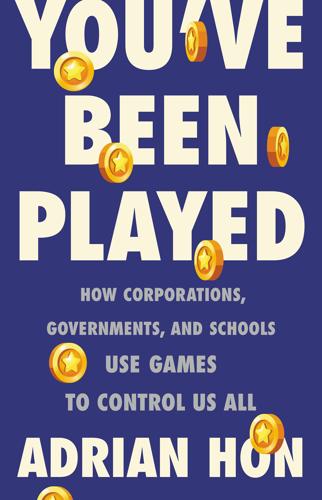
You've Been Played: How Corporations, Governments, and Schools Use Games to Control Us All
by Adrian Hon · 14 Sep 2022 · 371pp · 107,141 words
zenith on January 28, when Robinhood began limiting the purchase (but not sale) of GameStop shares along with AMC, BlackBerry, and Nokia shares, three other “meme stocks.”67 Though Robinhood said this was because they temporarily ran out of cash to cover obligations to their SEC-required clearinghouse, many onlookers were dismayed
…
that the traditional capital markets for large enterprises started to look like games, too. And that’s what we saw with GameStop and all the meme stocks. And Elon Musk. So I think those worlds are going to continue to merge together. And yeah, I mean, if it’s more fun, why
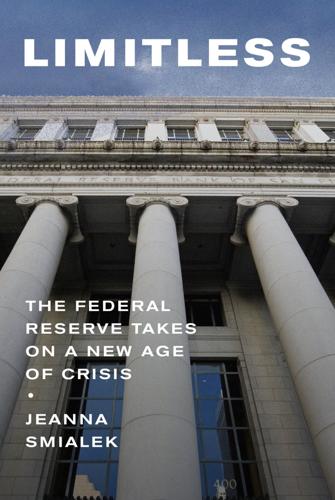
Limitless: The Federal Reserve Takes on a New Age of Crisis
by Jeanna Smialek · 27 Feb 2023 · 601pp · 135,202 words
digital currency. She was outlining first, careful steps. The urgency to keep up with digital innovation only intensified as the months passed, though. Internet-famous “meme” stocks took off in 2021, and so did cryptocurrencies, with everyday investors and major banks alike piling on. Stablecoins, private-sector digital tokens that were backed
…
“important questions” about “whether technology and social media have outpaced regulation in a manner that leaves investors and the markets exposed to unnecessary risks.”[11] Meme stocks making national headlines in 2021 did, at some level, trace back to the Fed, as participants in the phenomenon would tell you. “Ty Jpow” (translated
…
coverings, 219, 222–3 McAdoo, William, 59–60 McCabe, Thomas, 72–4 McConnell, Mitch, 138, 178, 179, 191, 192, 251–2, 267 McFadden Act, 62 meme stocks, 274, 291–2 Mester, Loretta, 154n Metropolitan Club, 11, 333n1 Mexico, 139, 145, 197, 266, 334n11 Missouri, 59 Mnuchin, Steven: allocation of money for programs
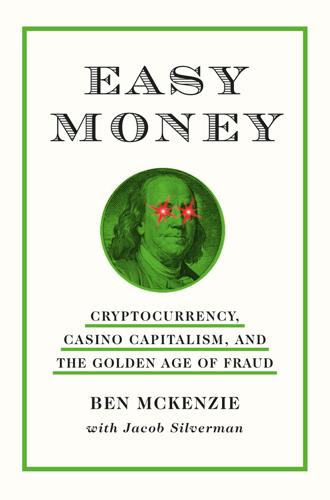
Easy Money: Cryptocurrency, Casino Capitalism, and the Golden Age of Fraud
by Ben McKenzie and Jacob Silverman · 17 Jul 2023 · 329pp · 99,504 words
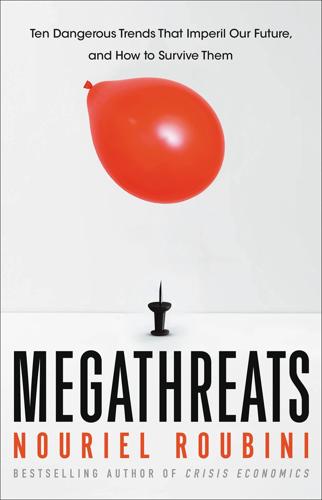
MegaThreats: Ten Dangerous Trends That Imperil Our Future, and How to Survive Them
by Nouriel Roubini · 17 Oct 2022 · 328pp · 96,678 words
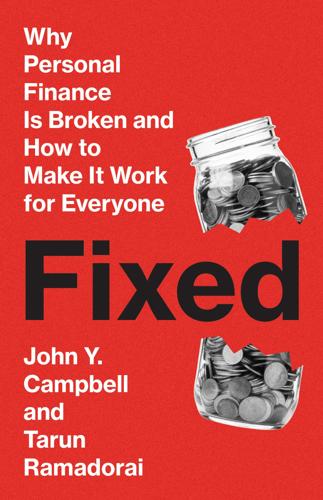
Fixed: Why Personal Finance is Broken and How to Make it Work for Everyone
by John Y. Campbell and Tarun Ramadorai · 25 Jul 2025
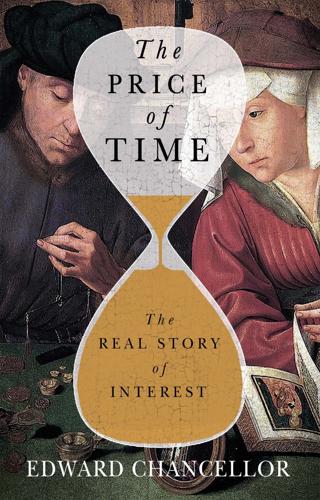
The Price of Time: The Real Story of Interest
by Edward Chancellor · 15 Aug 2022 · 829pp · 187,394 words
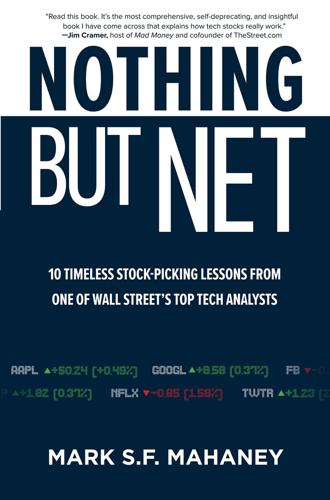
Nothing but Net: 10 Timeless Stock-Picking Lessons From One of Wall Street’s Top Tech Analysts
by Mark Mahaney · 9 Nov 2021 · 311pp · 90,172 words
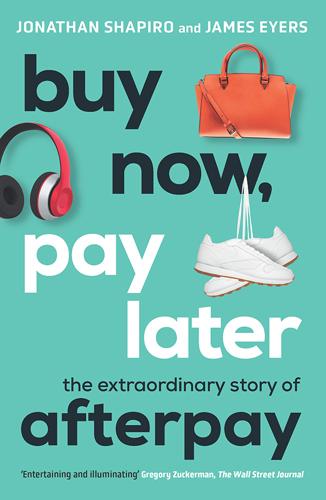
Buy Now, Pay Later: The Extraordinary Story of Afterpay
by Jonathan Shapiro and James Eyers · 2 Aug 2021 · 444pp · 124,631 words
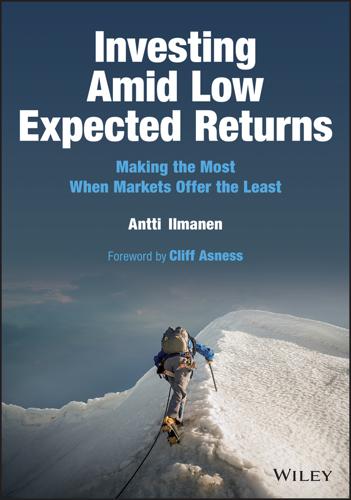
Investing Amid Low Expected Returns: Making the Most When Markets Offer the Least
by Antti Ilmanen · 24 Feb 2022

There Is Nothing for You Here: Finding Opportunity in the Twenty-First Century
by Fiona Hill · 4 Oct 2021 · 569pp · 165,510 words

The Simple Path to Wealth (Revised & Expanded 2025 Edition): Your Road Map to Financial Independence and a Rich, Free Life
by JL Collins · 191pp · 66,998 words

Billionaire, Nerd, Savior, King: Bill Gates and His Quest to Shape Our World
by Anupreeta Das · 12 Aug 2024 · 315pp · 115,894 words
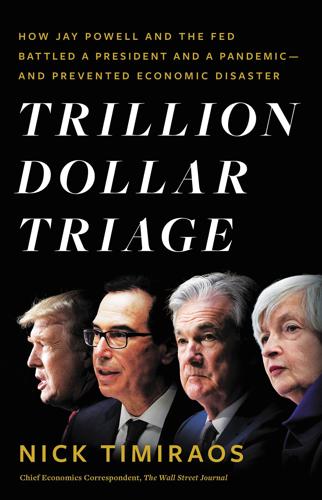
Trillion Dollar Triage: How Jay Powell and the Fed Battled a President and a Pandemic---And Prevented Economic Disaster
by Nick Timiraos · 1 Mar 2022 · 357pp · 107,984 words
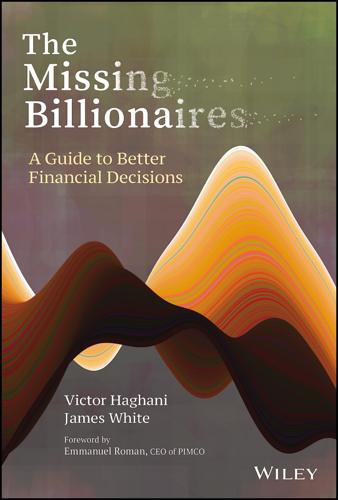
The Missing Billionaires: A Guide to Better Financial Decisions
by Victor Haghani and James White · 27 Aug 2023 · 314pp · 122,534 words